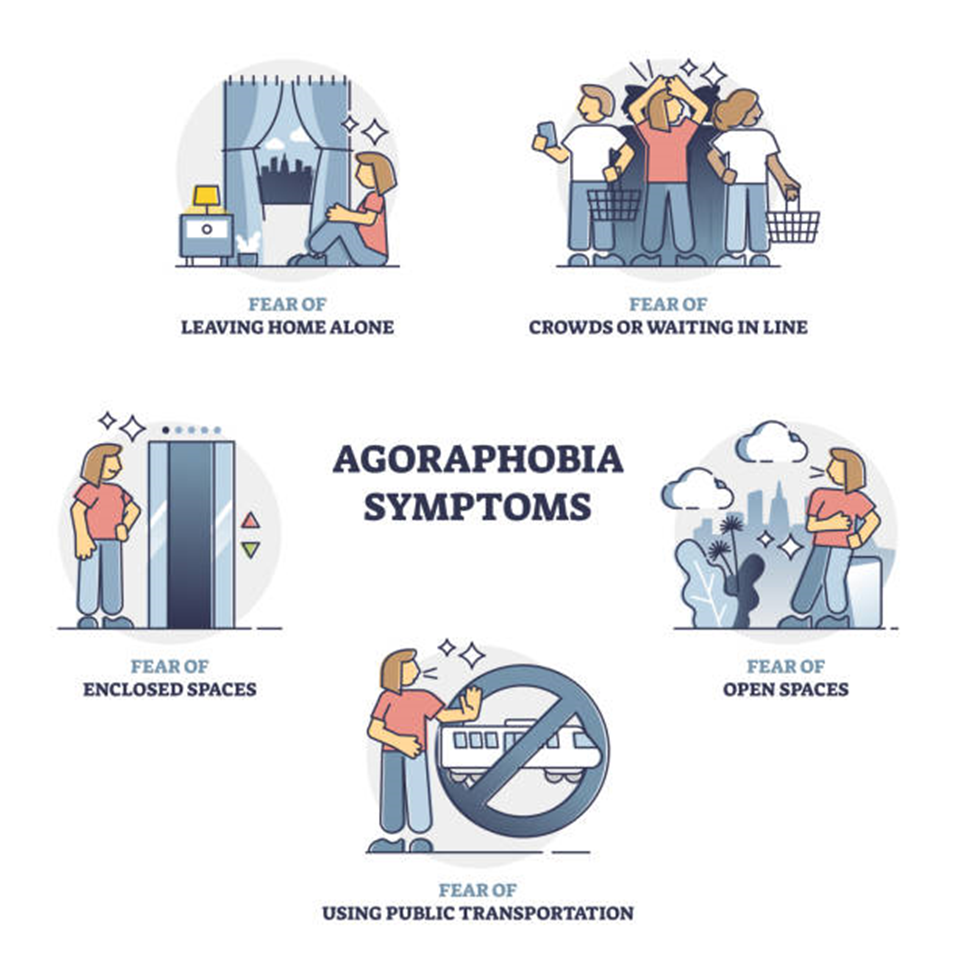A nurse in a mental health clinic is assessing a client who was brought in by her adult daughter. The daughter states that her mother has not been able to leave her home for weeks because she is afraid to be outdoors alone. Which of the following phobias should the nurse anticipate planning care for managing?
Acrophobia
Xenophobia
Agoraphobia
Mysophobia
The Correct Answer is C
Choice A reason: Acrophobia is the fear of heights, which is not indicated by the client's fear of being outdoors alone.
Choice B reason: Xenophobia is the fear of strangers or foreigners, which does not align with the client's described fear.
Choice C reason: Agoraphobia is the fear of open spaces or being in crowded, public places like markets. It also includes the fear of leaving a safe place, such as home, which aligns with the client's symptoms.

Choice D reason: Mysophobia is the fear of germs, which is not related to the fear of being outdoors alone.
Nursing Test Bank
Naxlex Comprehensive Predictor Exams
Related Questions
Correct Answer is B
Explanation
Choice A reason: Focusing on one issue can help in understanding the client's situation better and does not necessarily hinder empathy.
Choice B reason: Interjecting personal experiences can create a barrier to empathy by shifting the focus from the client's feelings to the nurse's own experiences.
Choice C reason: Asking leading questions may not hinder empathy but could direct the conversation away from the client's concerns.
Choice D reason: Asking the client to restate statements for clarity is a part of active listening and can actually enhance empathy by ensuring understanding.
Correct Answer is A
Explanation
Choice A reason: Given Brian's recent substance use and expression of not being able to tolerate depressive feelings, a suicide risk assessment is the highest priority to ensure his immediate safety.
Choice B reason: While a neurological assessment may be relevant, it is not the highest priority when there is a potential risk of suicide.
Choice C reason: Assessing the amount of current cannabis use is important but secondary to evaluating the risk of suicide.
Choice D reason: Marital status may inform social support but is not the highest priority in the context of potential self-harm.
Whether you are a student looking to ace your exams or a practicing nurse seeking to enhance your expertise , our nursing education contents will empower you with the confidence and competence to make a difference in the lives of patients and become a respected leader in the healthcare field.
Visit Naxlex, invest in your future and unlock endless possibilities with our unparalleled nursing education contents today
Report Wrong Answer on the Current Question
Do you disagree with the answer? If yes, what is your expected answer? Explain.
Kindly be descriptive with the issue you are facing.
